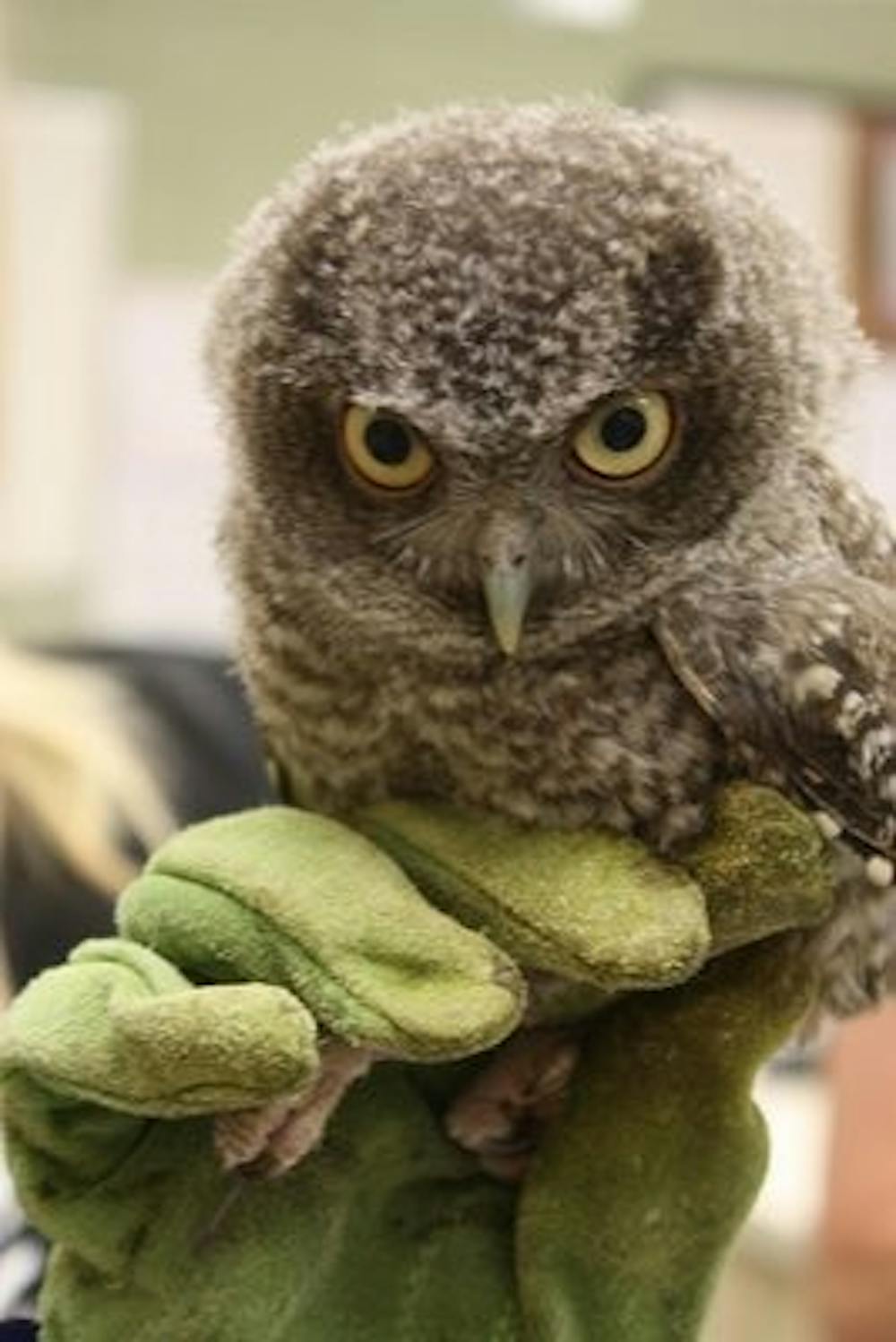The Southeastern Raptor Rehabilitation Center in Auburn is most well known for being home to Auburn's eagles that fly before each home football game.
However, the center also takes in hundreds of orphaned and injured birds each year.
Recent storms have resulted in numerous orphaned owls being sent to the center, and these owls are being prepared to be released shortly.
"Some of these (birds) came in from the storm that we had a couple of weeks ago that was really bad," said Eva Matthews, veterinary technician for the Raptor Center.
"Other ones were just orphan owls that were found in the area, and people brought them into us."
According to Matthews, some of the birds brought in because of the storm were screech, great horned and barred owlets, as well as red shoulder hawks.
"The nests were knocked down, and the parents were not seen," Matthews said. "So, people brought them into us."
These young raptors came from cities including Wetumpka and Pine Mountain, Ga.
Raptors at the center normally come from a 100-mile radius of Auburn, unless another center cannot take care of an injured bird and send it to Auburn.
"Each year in the spring season, we take on a lot of fledglings and nestlings," said Liz Crandall, rehabilitation specialist.
"Most of the time, they were not orphaned or abandoned, they were perfectly healthy birds that were being raised by their parents."
Often, people will see birds on the ground and assume they are orphans.
They take them to the Raptor Center, which receives about 200 raptors each year, Crandall said.
"We try to discourage that," Crandall said. "Songbirds, hawks and owls are on the ground for a month or more--trying to learn how to hunt, how to fly and things like that--before they become completely independent of their parents."
When fledglings are received, the employees and volunteers at the Raptor Center place the new bird with a foster parent.
"A foster parent is basically a bird that for some reason is not able to be released," Matthews said. "When we put them with the fosters, they teach them to hate people. That's the way we get them (fledglings) to make sure they aren't imprinted toward people, so we can release them back into the wild safely."
Before the fledglings can be released, they must learn all the skills needed to survive on their own.
The foster parent helps the fledgling more than humans could with this act.
If the bird is fully healthy from arrival, the process takes three months on average, Crandall said.
"I can't teach an owl how to hunt a live mouse," Crandall said. "We just hope for the best."
Rehabilitating raptors can become an emotional job, which is one reason Matthews said the orphans are not named, but rather given numbers.
"One of my favorite birds is going to be released this summer, and I know I'm going to cry," Matthews said.
"He had two broken arms and was shot. To know I helped him back to full health means a lot to me."
With such a small number of staff members, volunteers are important to the Raptor Center.
Anyone interested can apply.
After a short orientation, volunteers can choose ways to assist the staff with work around the center.
"The volunteers run this place," Matthews said. "We couldn't do it without them."
Do you like this story? The Plainsman doesn't accept money from tuition or student fees, and we don't charge a subscription fee. But you can donate to support The Plainsman.





